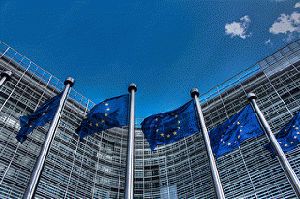Reprinted from Dispatches From The Edge
"Larger now than the Roman Empire of two thousand years ago, more opaque than the Byzantine, the European Union continues to baffle observers and participants alike." -- Perry Anderson, British historian
The European Union is one of the premier trade organizations on the planet, with a collective GDP that matches the world's largest economies. But it is far more than a trade group. It is also a banker, a judicial system, a watchdog, a military alliance and, increasingly, an enforcer of economic rules among its 28 members.
On the one hand it functions like a super state, on the other, a collection of squabbling competitors, with deep divisions between north and south. On June 23, the two-decade-old organization will be put to the test when Great Britain--its second largest economy -- votes to stay in the EU or bail out.
The awkwardly named "Brexit" has stirred up a witches' brew of xenophobia, racism and nationalism, but it has also served to sharpen a long standing debate among the European left over the nature of the organization, and whether it serves to unite a continent shattered by two world wars or functions as little more than a vehicle to spread a particular species of capitalism that has impoverished more people than it has lifted up.
The EU was originally sold as an effective way to compete with U.S. and Japanese commercial power (and later China) by integrating the economies of Western Europe into a common market. The 1957 Treaty of Rome established the European Economic Community (EEC), but that organization was plagued by currency instability.
Currency manipulation is a standard economic strategy, one the U.S. Treasury follows to this day. The idea is to boost exports by deflating one's currency, thus making one's products cheaper. In an organization like the EEC, however, where currencies were traded back and forth, that strategy caused chaos, particularly after the Americans decoupled the dollar from gold in 1971. The U.S. immediately began aggressively devaluing its currency and undercutting Germany.
To make a long history brief, Germany and France began pushing for a common currency, though for different reasons.
For Germany, fluctuating currency rates cut into that country's export engine. For France, a common currency would give Paris some say over the EEC's economic policies through the creation of a European Central Bank, policies that at the time were largely determined by Germany's powerful economy.
(Note: You can view every article as one long page if you sign up as an Advocate Member, or higher).






